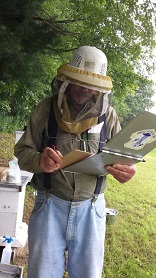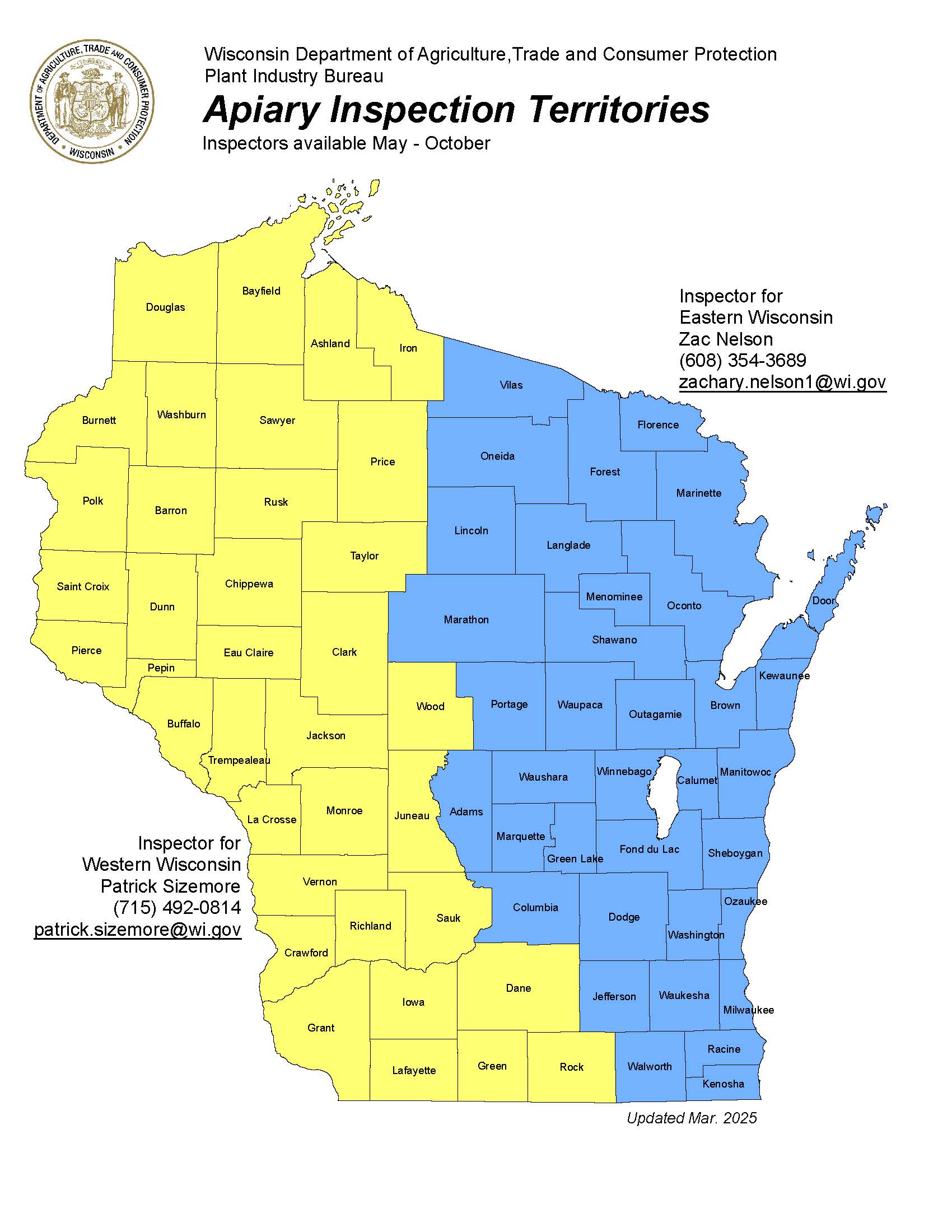 In Wisconsin, beekeepers
are not required to register their honey bee colonies. The Wisconsin Department of Agriculture, Trade and Consumer Protection (DATCP)
has an apiary program coordinator and two seasonal apiary inspectors
available during the beekeeping season to provide inspections.
In Wisconsin, beekeepers
are not required to register their honey bee colonies. The Wisconsin Department of Agriculture, Trade and Consumer Protection (DATCP)
has an apiary program coordinator and two seasonal apiary inspectors
available during the beekeeping season to provide inspections.
Voluntary Inspections
The Apiary Program offers
free, voluntary colony inspections to all Wisconsin beekeepers from May
through October. An inspection can help diagnose pest and disease issues
(including sending samples to external laboratories for molecular diagnostics,
as needed, if resources allow), test for Varroa mites, provide management
advice, and more. Please note that inspection dates/times
are scheduled on a first come, first served basis. To schedule an
apiary inspection, fill out this form, email DATCPapiary@wisconsin.gov, or
call Patrick at (715) 492-0814 and he will either schedule an inspection with
you or refer the inspection to our eastern inspector, once hired.

Beekeepers should be present at the inspection to discuss hive history and to potentially assist with lifting hive bodies. If you have more than one colony, a percentage of colonies within the apiary will be inspected for Varroa mites, virus and disease symptoms, and exotic pests.
National Honey Bee Survey
Are you a beekeeper with eight or more colonies and interested in expanding the dataset for honey bee health surveillance? Consider participating in the National Honey Bee Survey (NHBS). Wisconsin's apiary program has been voluntarily participating in the NHBS since 2011. This survey, which yields important scientific baseline data, is sponsored by the United States Department of Agriculture (USDA) Animal and Plant Health Inspection Service (APHIS) in collaboration with the USDA Agricultural Research Service (ARS). It is primarily geared at establishing the absence of Apis cerana and the parasitic Tropilaelaps mite in the U.S. to safeguard crop pollination. Participating beekeepers volunteer to have their apiary inspected, and to have samples collected and processed by the University of Maryland. Participants later receive diagnostic data related to those samples. Contact DATCPapiary@wisconsin.gov to see if we can include your apiary in the NHBS.
Migratory Beekeepers
Are you moving bees into or out of Wisconsin? While state-level honey bee hive registration is not required in the State of Wisconsin, those importing honey bees or used beekeeping equipment into Wisconsin are required to fill out a Honey Bee Import Report prior to bringing items into the state. More information about this reporting requirement is available on our Moving Bees Into Wisconsin page.
If you need a Certificate of Apiary Inspection to move your honey bees from Wisconsin to another state, schedule a colony inspection with one of our apiary inspectors. After the inspection, the state apiarist will provide you with an invoice (if applicable) and issue your Certificate(s) of Apiary Inspection once all fees are paid and data are evaluated. A DATCP apiary inspection is free, but each apiary certificate costs $50. Verify your destination state's requirements with their local apiary inspection service. For migratory inspections, colonies must be accessible in the yard and not yet loaded on the truck.
<< Back to main apiary page